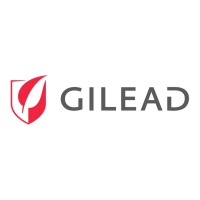Gilead Sciences (GILD) Announces Yescarta Demonstrates High Rates of Response in Relapsed or Refractory Indolent Non-Hodgkin Lymphoma

Kite, a Gilead Company (Nasdaq: GILD), today announced results from an interim analysis of ZUMA-5, a global, multicenter, single-arm, open-label Phase 2 study evaluating Yescarta® (axicabtagene ciloleucel) in adult patients with relapsed or refractory indolent (slow growing) non-Hodgkin lymphoma (NHL) after at least two prior lines of therapy. After a single infusion of Yescarta, 93 percent of patients (n=96 evaluable for efficacy) responded, with 80 percent of patients achieving a complete response (CR) as assessed by an independent review committee. The data were presented in an oral session during the 2020 American Society of Clinical Oncology (ASCO) Annual Meeting held from May 29-31 (Abstract #8008). The presentation has also been selected for a Highlights of the Day session as part of ASCO’s 2020 Virtual Scientific Program on Saturday, May 30 at 11:30 am ET. The Highlights sessions recap the most impactful science from the oral sessions.
Pending results from the primary analysis at 12 months, Kite plans to submit a supplemental Biologics License Application (sBLA) to the U.S. Food and Drug Administration (FDA) later this year to expand the indication for Yescarta. Yescarta has previously been granted a Breakthrough Therapy Designation (BTD) by the FDA for relapsed or refractory follicular lymphoma (FL) or marginal zone lymphoma (MZL) (two types of indolent NHL) after at least two prior therapies. If approved, Yescarta would become the first and only chimeric antigen receptor (CAR) T therapy approved for the treatment of relapsed or refractory indolent NHLs.
“People living with certain indolent non-Hodgkin lymphomas, such as follicular lymphoma, can experience relapses with increasing frequency and develop a more aggressive disease over time despite available treatments,” said Caron A. Jacobson, MD, Medical Director, Immune Effector Cell Therapy Program, Dana-Farber Cancer Institute and Assistant Professor of Medicine, Harvard Medical School. “Thus, the strong overall response and complete response rates demonstrating the potential of this therapy is extremely promising for these patients.”
Ninety-five percent of patients with relapsed or refractory FL (n=80) who had received at least two prior lines of systemic therapy responded to Yescarta, including 81 percent of patients achieving a CR and 68 percent of patients in an ongoing response after at least nine months of follow-up as per independent review committee assessment. Of patients with relapsed or refractory MZL (n=16), 81 percent responded to Yescarta, with 75 percent achieving a CR after at least one month of follow-up as per independent review committee assessment. With a median follow-up of 15.3 months in all patients, median duration of response (DOR) was 20.8 months, median progression-free survival (PFS) was 23.5 months and median overall survival (OS) was not reached.
In the safety analysis of 140 treated patients with FL or MZL, Grade 3 or higher cytokine release syndrome (CRS) and neurologic events occurred in 8 percent and 17 percent of patients, respectively. There were two Grade 5 adverse events in patients with FL, including one patient with multisystem organ failure in the context of CRS related to treatment with Yescarta and one patient with aortic dissection unrelated to Yescarta treatment. The primary analysis with 12 months of follow-up is ongoing.
“Yescarta is substantially improving outcomes for people with certain relapsed and refractory cancers, such as diffuse large B-cell lymphoma,” said Ken Takeshita, MD, Kite’s Global Head of Clinical Development. “These results from ZUMA-5 support our assessment that Yescarta has the potential to provide benefit in indolent NHL, and we look forward to sharing results from the primary analysis in patients with relapsed or refractory disease later this year.”
Yescarta has not been approved by any regulatory agency for the treatment of indolent non-Hodgkin lymphoma, including follicular lymphoma or marginal zone lymphoma. Its safety and efficacy have not been established in these lymphomas.
Yescarta was the first CAR T cell therapy to be approved by the FDA for the treatment of adult patients with relapsed or refractory large B-cell lymphoma after two or more lines of systemic therapy, including diffuse large B-cell lymphoma (DLBCL) not otherwise specified, primary mediastinal large B-cell lymphoma (PMBCL), and high grade B-cell lymphoma and DLBCL arising from FL. Yescarta is not indicated for the treatment of patients with primary central nervous system lymphoma. The Yescarta U.S. Prescribing Information has a BOXED WARNING for the risks of CRS and neurologic toxicities, and Yescarta is approved with a risk evaluation and mitigation strategy (REMS) due to these risks; see below for Important Safety Information.
About Indolent Non-Hodgkin Lymphoma
Follicular lymphoma (FL) and marginal zone lymphoma (MZL) are both forms of indolent non-Hodgkin lymphoma (NHL) in which malignant tumors slowly grow but can become more aggressive over time.
FL is the most common form of indolent lymphoma and the second most common type of lymphoma globally. It accounts for approximately 22 percent of all lymphomas diagnosed worldwide. MZL is the third most common lymphoma, accounting for 8 to 12 percent of all B-cell NHLs.
Despite advances in management and substantial improvements in long-term survival, patients living with FL have varied outcomes. Currently, there are no standard of care treatments for relapsed and refractory FL after two or more lines of therapy, and there are limited options for the treatment of relapsed or refractory MZL.
